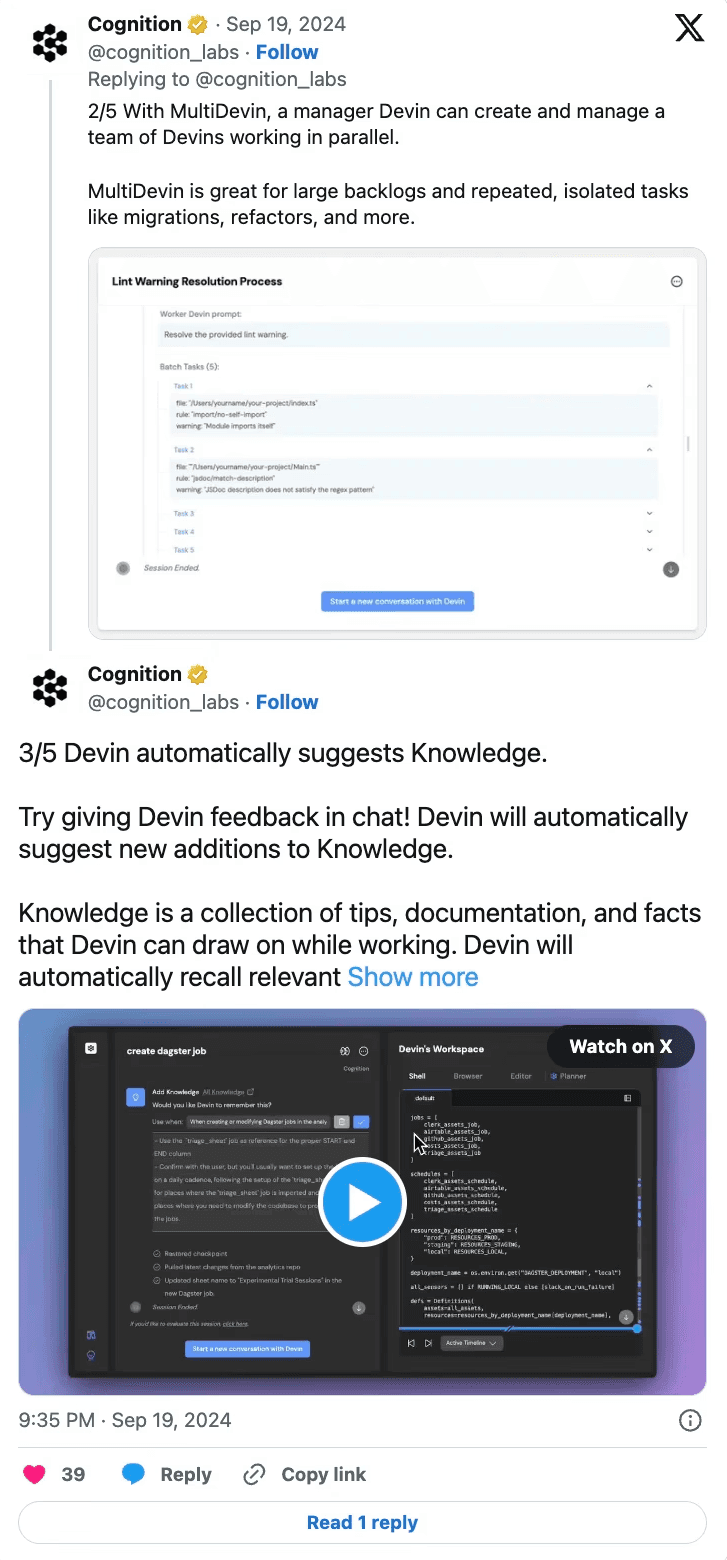From Content Creation to Knowledge
“An investment in knowledge pays the best interest.” — Benjamin Franklin
No one reads documentation, but AI does
Emails, meeting reports, chat messages and wikis: there is no shortage of information in our organizations. As coders, we understand the importance of documentation: we strive to add code comments, write READMEs, and create installation and operational guides. There’s also additional content in other places: the errors in our terminal or what’s displayed in our browser, pull requests, our tickets and incident reports.
What’s great is that all this unstructured information powers AI: by bringing in all the relevant documentation and given the right context, it improves the code suggestions. Instead of searching around endless and possibly outdated wikis, the content is presented and adapted to where we needed it. This inline learning and close feedback flow helps to keep the documentation up to date and correct it where needed.
Automating the Ask Around culture
The reality is there’s still more knowledge inside of a developer’s head than there is in the written documentation. This is often very tangible when a new team member joins or someone leaves. After having read the available documentation, there is usually a briefing session with a more senior member who has historical knowledge and likely a few production battle scars.
The question often comes up: how will more junior members level up to become a senior? Junior members often answer it by stating that AI makes them learn faster. Imagine we can turn codebases into lessons, ask questions about their history, it prevents us from retrying past failing implementations.
On the flip side, AI can help us keep track of the knowledge we collect over the course of a codebase: Devin, an autonomous coding agent, asks during code chat sessions if information discussed should be documented as it seems important. This collection of knowledge benefits both humans and AI: code suggestions will be better and humans get up to speed faster.

Designing Systems That Learn With Us
Some companies hire the best of the best and then turn them into glorified ticket solvers. This drains them from the passion and makes work feel like work. The majority of developers want to learn, solve meaningful problems and get better every day. The future of development isn’t just about writing better code — it’s about designing systems that learn alongside us. They can continue to grow and bring unique value to their teams, making their roles even more impactful and fulfilling.
Knowledge might be the only competitive edge left
In a world where tools level the playing field and code can be generated by anyone, the real differentiator is what your team uniquely knows — about your systems, your customers, your edge cases. This collective learning, if captured and surfaced well, becomes a unique asset. The role of management is to foster this continuous learning both for humans and AI. Companies that win won’t just build faster; they’ll learn faster — and make that learning work for them.






